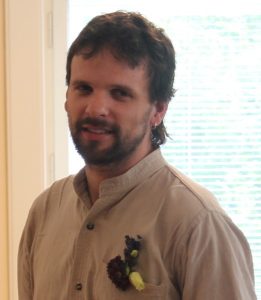
Born and rised in Madrid, I have, later on, lived and developed my professional and academic career in different countries. I hold a Bachelor’s degree in Geography and History by UNED in Spain and a Master’s degree in History, International Relations, and Cooperation by the University of Porto. My interest field are the migration studies and, specially, the processes of political participation of migrant communities and their mechanisms of subjectivity formation, which I aim to explore from an activist approach of research though processes of participant observation.
Through participation in social movements and research about agency in marginalised groups, such as irregularised migrants, I have observed a kind of knowledge which could be defined as grassroots expertise. This form of expertise has been developed, at times, in partnership with academic institutions. It is precisely the will to deepen into this kind of knowledge production and distribution ─one in which lived experience becomes a source of knowledge and in turn this knowledge can be useful for grassroots actors─ what encourage me to enrol in MOVES programme. My interest on migration and political participation comes from my personal experience living abroad for so many years. During this time I became familiar with phenomena of labour –and living– precarity, as well as with the fragility linked to the migrants’ ephemeral and fragmented temporalities. That is the context in which I became involved in the creation and development of spaces of collective reflection and participatory research revolving around migration, precarity and the production of common knowledge; experiences that above all, allowed me to lay the foundations upon which I built my later endeavour as a student and researcher.
At MOVES my research focuses on the project Types of Migration in Their Relation to Forms of Slavery, in which I want to account for political and economic context in which unfreedom – or what some call ‘modern slavery’– takes place by questioning about who extracts labour from whom, what is the nature of production and employment relations, how property relations are maintained, and who profits from existing circumstances. By focusing on the domestic and care sector I aim to provide some insights about the way in which mobility, gender and labour interact with migrant agency vis-à-vis unfreedom, hyper-precarity and control practises of state sovereignty. These studies and the research involved follow a line of work opened during my Master’s degree, but are also embedded in a wider personal project characterised by the will to bridge experiences, knowledge and acts of citizenship of invisible migrant groups, with formal research from academia. The desire of contributing to fill the gap between grassroots actors and academic knowledge, as an attempt to integrate the perceptions, concerns and claims of marginalised subjects both in academic curricula and public agendas truly moves me.






